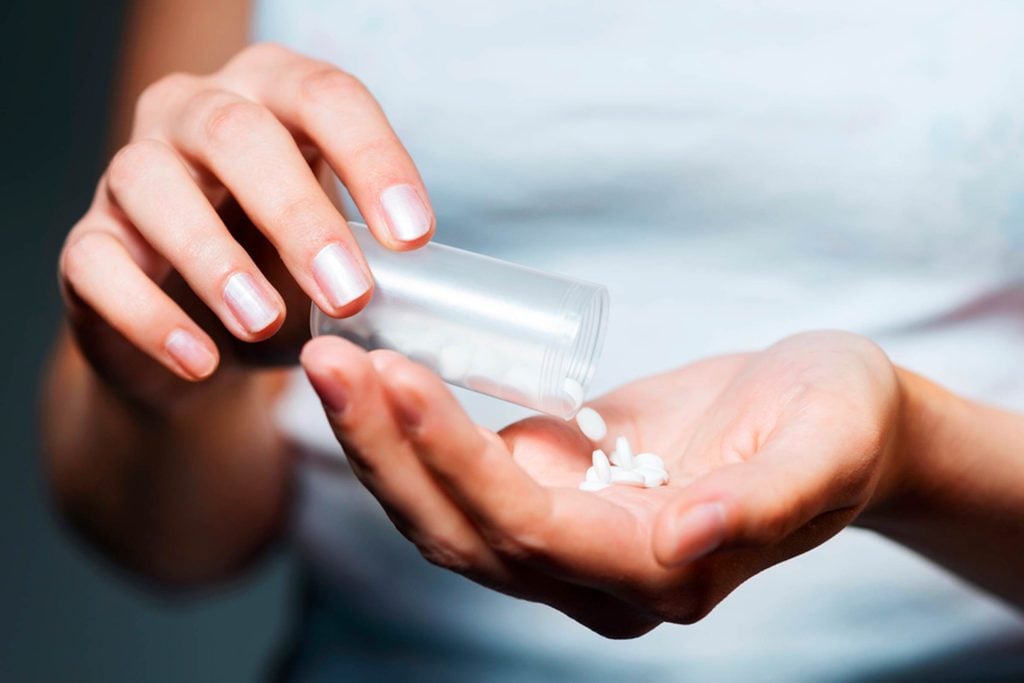Your Ibuprofen Habit Could Be Keeping You Weak—Here’s Why
Updated: Sep. 20, 2017
When it comes to working out, there's no shortage of diehards who love to tell you, "No pain, no gain." Well, we're sorry to break the news: it looks like there could be some truth to it after all.
The idea that you must suffer some pain to get fitness gains might be one of the biggest clichés you’ll hear from personal trainers. While they’re full of great tips, like the most important moves trainers use to transform your body, you might be unhappy to hear that they’re also right on the money with “no pain, no gain.” If you take certain over-the-counter painkillers to ease post-workout soreness, you’re undermining your efforts, reveals a new study published in the journal, Acta Physiologica.
Researchers at Stockholm’s Karolinska Institute recruited 31 healthy men and women between the ages of 18 and 35 and randomly assigned them to take a high dose of ibuprofen (1200 mg over the course of a day) or a low dose of aspirin (75 mg) for eight weeks. At the same time, the volunteers followed a supervised weight training program. The researchers measured the volunteers’ muscle mass and strength at the beginning of the study and again at the end.

Remarkably, people taking the low-dose aspirin had twice the muscle development and a much bigger increase in strength than those taking high doses of ibuprofen—also known as a non-steroidal anti-inflammatory drug, or NSAID. Other examples of NSAIDs include naproxen (Aleve), celecoxib (Celebrex), oxaprozin (Daypro), and aspirin—among others.
The results indicate that people trying to maximize muscle growth and strength should avoid excessive intake of NSAIDs, Tommy Lundberg, PhD told Science Daily. The low-dose aspirin group had more muscle inflammation, and Dr. Lundberg theorizes that muscle growth may depend on this inflammation—something NSAIDs are specifically designed to tame. He says that “muscular inflammation processes, when combined with weight training, are beneficial to the long-term development of new muscle mass, at least in the young.”
Considering that NSAIDs may increase your risk of a heart attack by up to 30 percent, the fact that they can sabotage your fitness progress should send you looking for other solutions to your aches and pains. If you’re young and hoping to build muscle mass and strength, you may want to try 75 mg of aspirin or take acetaminophen—Tylenol—which works differently than NSAIDs. Or you could tough it out. Personal trainers everywhere would be proud.
